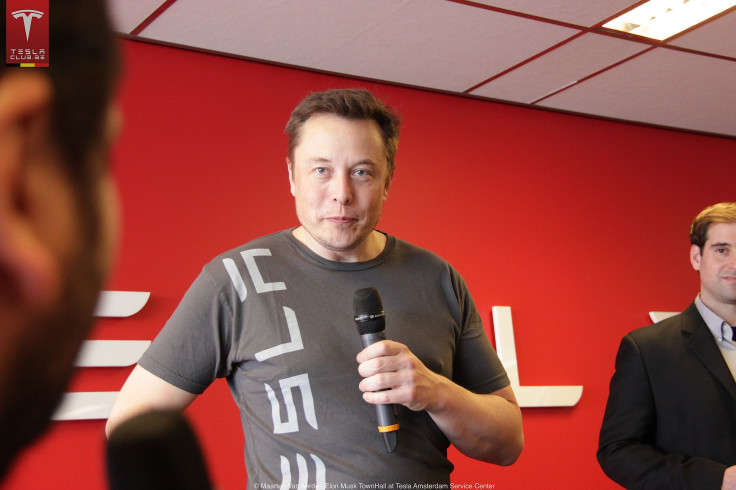Elon Musk Urges Trade Barriers To Protect Local EV Makers from Chinese Giants
Tesla's attempt to compete with BYD's lower-priced offerings failed, leaving the Chinese automaker in control of the budget EV market.

With Chinese EV makers garnering huge popularity, Tesla CEO Elon Musk warns that deploying trade barriers might be the only way to protect local automakers from being demolished.
While Musk-led Tesla chases its "ChatGPT moment," rivals like BYD are taking the electric car segment by storm. Despite its price cuts in 2023, Tesla recently lost its top spot as the world's best-selling EV maker to the Chinese firm, which offers cheaper models and boasts a diverse lineup.
Tesla CEO Elon Musk said Chinese carmakers like BYD, which undercuts overseas competitors on prices, will ‘demolish’ rivals if trade barriers are not imposed. Tesla will start production of a new, cheaper model next year, according to sources https://t.co/qnVkc1jbbh pic.twitter.com/ShUT1zeyZR
— Reuters (@Reuters) January 25, 2024
"The Chinese car companies are the most competitive car companies in the world. So, I think they will have significant success outside of China depending on what kind of tariffs or trade barriers are established," Musk said on Tesla's earnings call earlier this week.
"Frankly, I think, if there are not trade barriers established, they will pretty much demolish most other companies in the world," the 52-year-old billionaire added.
In response to increasing competition from budget-friendly rivals, Tesla is reportedly planning to make its foray into the affordable crossover market with Redwood, which is expected to arrive in mid-2025.
A few other products coming too https://t.co/4Tv3tAOEPo
— Elon Musk (@elonmusk) January 5, 2024
The business magnate has confirmed that his automotive company could start production of its next-generation EV at its Texas factory in the second half of 2025. This aligns with Musk's announcement about the arrival of new Tesla products in an X post.
Chinese EV makers face challenges in the US market
Chinese EV manufacturers have been showcasing an unparalleled ability to control costs while maintaining a stable supply chain. Unsurprisingly, they are now expanding their global presence.
Regrettably, Chinese brands still face challenges in the US market due to perceived concerns about reliability, durability and safety. Spencer Imel, who is a partner at consumer insights firm Langston, has urged Chinese car companies to improve the abovementioned aspects to gain market share in the US.
2011: Elon Musk couldn’t stop laughing when the interviewer asked if BYD is a competitor.
— S.L. Kanthan (@Kanthan2030) January 25, 2024
Q4 2023: BYD surpassed Tesla as the world’s #1 EV maker (in unit sales).
And now Elon wants tariffs to protect the US market from the Chinese cars that he once laughed at. pic.twitter.com/MYuUlO0rKC
"They enjoy high demand in China with innovation such as in-car technology and battery swapping," Imel said. "That, we believe, will be an important ingredient and a differentiator in their future growth overseas," according to a report by Reuters.
Musk's comments also come ahead of the US presidential election. US President Joe Biden has previously accused China of trying to dominate the EV market, further noting that he "won't let that happen".
The frontrunner for the Republican nomination for president this year, Donald Trump, has threatened to implement major new tariffs or trade restrictions on China if elected. In August, the former US president floated the idea of a 10 per cent universal tariff, which could disrupt international markets.
Aside from the US, Europe has taken a protectionist stance towards Chinese EV firms. In 2023, the European Commission launched an investigation into whether it is necessary to impose punitive tariffs to protect EU producers against Chinese EV imports.
In response, China's ambassador to the European Union called the EU's probe into Chinese EV makers over state subsidies "unfair". Fu Cong, a Chinese diplomat, noted that "there are many things that could be subject to investigation".
In line with this, New Electric's Ross Gregory noted that instead of tariffs, the US and Europe need to come up with policies that give their automakers enough time to develop a diversified supply chain
Tesla shares tumble after Elon Musk warns of slowdown
While Musk recently admitted there was "no obvious opportunity" to partner with Chinese rivals, the tech mogul said he is willing to give them access to Tesla's charging network and license other technologies such as self-driving.
If you thought you were having a bad day, be glad you’re not Musk.
— Bosco LXIX (@JoeyCoco5or624) January 26, 2024
He lost over $1B today with Tesla shares dropping $25 in value… pic.twitter.com/1kdXtR1xmS
In the meantime, Tesla has witnessed its biggest drop in over a year as the EV maker's shares closed down 12 per cent on January 25. This alarming drop came just a day after the company reported earnings that hinted at a slowdown in 2024.
Tesla warned that vehicle volume growth in 2024 "may be notably lower" compared to the rate observed last year, as the company is on the verge of launching its "next-generation vehicle" in Texas and is "currently between two major growth waves".
© Copyright IBTimes 2024. All rights reserved.






